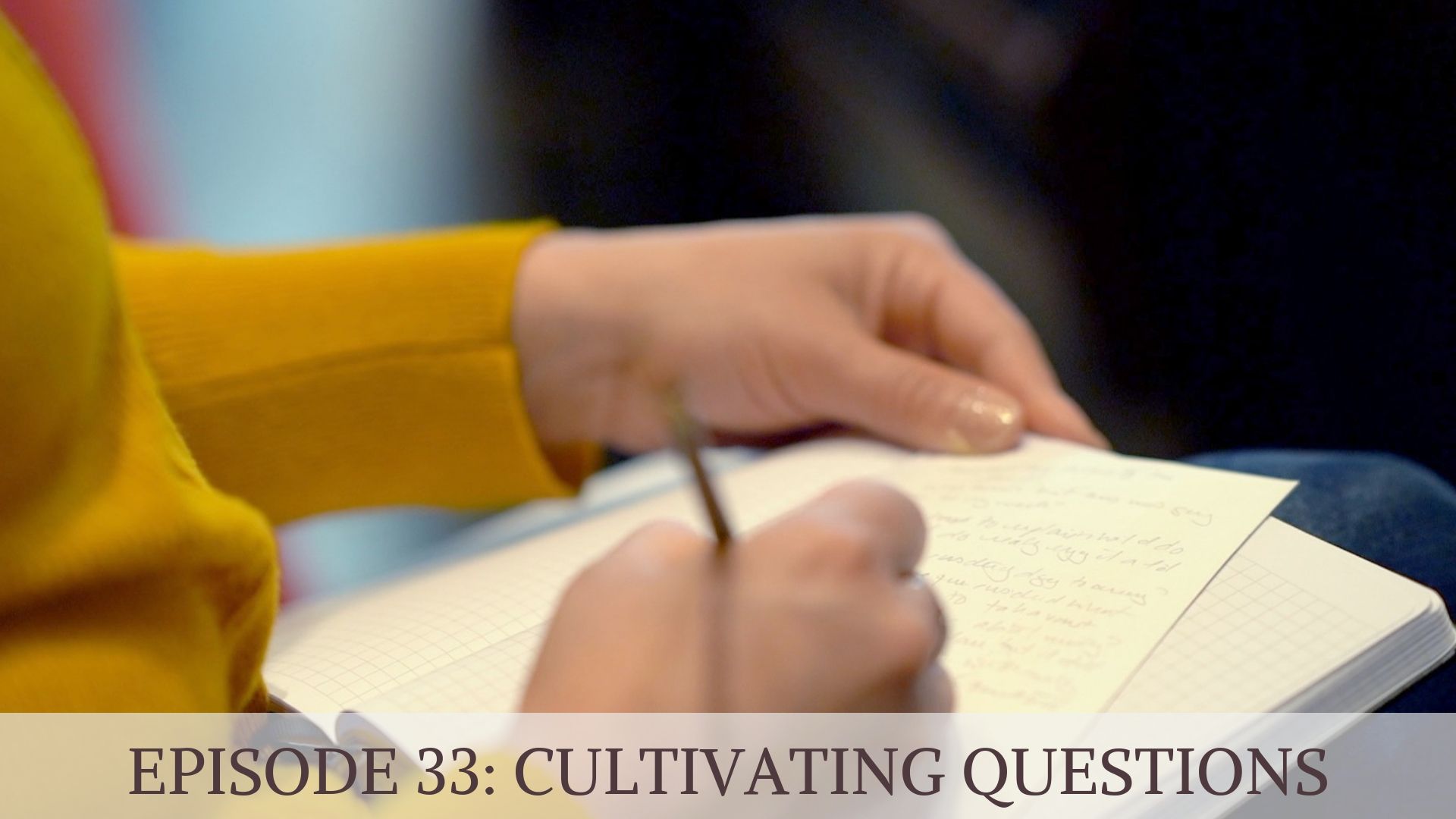“Questions?”
When I took a public speaking course a few years ago, this is how the instructor taught us to end our speeches: Ask, “Questions?” And then wait for the audience to start asking.
In ministry, teaching, and lots of other professions, if we want our presentations to be more than one-sided monologues, both asking questions and inviting questions can help.
In this week’s episode of Three Minute Ministry Mentor, I share a story about Pastor Greg* — a participant in the Learning Pastoral Imagination Project — who learned early on to value good questions as part of his pastoral ministry.
There are many ways I’ve learned that asking questions will get you further. I could describe the way questions operate in various ministry settings. For today, let’s focus on getting further, not simply as a matter of making progress, but of getting to the “more” of the situation. Let’s consider how cultivating good questions can get us further in three crucial components of ministry: understanding, empathy, and discernment.
- Further in understanding: When phrased right, thoughtful questions lead to more understanding in complex or escalating situations. This week while my husband and I were navigating an unexpected situation with our daughter who was at sleep-away camp, we needed better understanding in order to make the best decisions. We needed to talk to more people and ask more questions. We asked clarifying questions, information-gathering questions, and direct yes-no questions. My husband and I asked each other questions about possible scenarios, and we wondered who could give us the help we needed. Fortunately asking more questions led us to better and better information.
- Further in empathy: The situation like the one we faced with my daughter was complex and insisted on greater understanding. But equally complex is the need to understand people. Empathy takes patience and a willingness to “not know” until someone tells us or shows us what they are thinking, feeling and experiencing. This week I needed to ask many honest, open-ended questions to reach real empathy with my husband. He was having a very different emotional experience than I was, and it took listening to see the “more” of what he was feeling. The more empathy I cultivated with him through the questions I asked, the more ready I was to support the direction that his intuition said we should go.
- Further in discernment: This week we needed both greater understanding and greater empathy in order to reach a decision about how best to care for our daughter. We asked a lot of versions of what is the best/right/most helpful thing to do? We weighed out all the options and in the end it was abundantly clear what we needed to do. And we did it. Getting further with empathy for each other, and understanding of the situation, really helped us discern the right choice.
Whether you are an activist, chaplain, congregational minister, or non-profit ministry leader, the practice of ministry nearly always requires discernment about: how to lead a community. how to understand the “more” of the situation, how to hear the experiences, feelings, and ideas of the people involved, and finally how to decide what to actually do. Thoughtful, intentional questions can lead the way in every case.
What kind of questions are you cultivating in your ministry?
++++++++++++++++++
We have some questions for YOU!
Do you want to catch up on the latest episodes of 3MMM? You can see them all here.
 Have you entered the “Summer Conference Celebration Giveaway”?
Have you entered the “Summer Conference Celebration Giveaway”?
You still have time! Sign up for the weekly 3MMM email, and you will be entered, and you’ll get each new episode as they are published. Also you can post on social media and tell us what you are reading! You’ll be entered in the giveaway a second time. Please tag us with #3MMM or use our social media handles.
Do you have some feedback for us?! Please know you are invited to share your thoughts with us, here!
Are you a podcast lover, then please check out the weekly 3MMM podcast? You can find your favorite podcasting platform here!
* Pastor Greg (pseudonym) is a study participant in the LPI Project. This story is shared with his permission.




